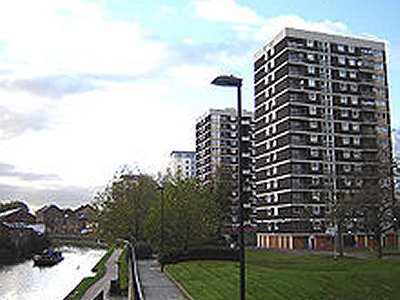
WHAT THE CHURCH CAN DO FOR THE CAUSE OF SOCIAL MOBILITY
There should be no postcode lottery when it comes to places of worship
In November 2017, the Social Mobility Commission produced its latest ‘State of the Nation’ report. The Commissioners promptly resigned en masse. It was a shocking product of their sense that no real progress is being made in helping poorer children better their circumstances in adulthood. This news briefly caused a stir but the wave has subsided. We all believe in the value of social mobility – like motherhood and apple pie – but it simply does not register highly in our public priorities. The Social Mobility Commission clearly hoped their action would initiate change, but it may only serve to undermine their goal.
Their last findings were graphic: a stark social mobility postcode exists in Britain. This is no north-south divide, but a London and the rest of the country question. London accounts for nearly two-thirds of all social mobility hotspots. The Midlands, coastal towns, inaccessible rural areas and older industrial towns fare especially badly. In the same month, UCAS demonstrated that the poorest school leavers are half as likely to attend university as their peers.
As with other social issues, there are two poles which people can gravitate to if they do not want a nuanced debate on the question. One side places social mobility firmly in the court of the individual to show the graft and determination to succeed. The other locates it purely in the social circumstances that surround the individual.
A few people may succeed in life without trying, but they are rare and usually depend on social circumstances some think irrelevant, like being born into the right kind of family that has wealth and connections to disburse. Most people have to work hard to get on. But what if they are still hindered in doing so? This is the injustice of social immobility, when no matter how much you try, things do not get better. Most people accept that circumstances like parental love and encouragement, education, financial well-being, friends, access to the right information at the right moment all assist. The broader state of the economy is a big factor too, as it sets wages and fixes rents and mortgages at levels that either help or inhibit people in their mobility.
Sadly, today’s economy is not favouring young people who lack the building blocks of the more privileged. No-one can feel comfortable about this, and it is reflected in the ritualised language people use when they are successful, where this is almost universally attributed to personal hard work and wanting it more than the next person. In this way, people can ignore the way circumstances worked better for them than others. The winners write the script and nothing changes.
There is, if we like, the idea of spiritual mobility. We are all called to be disciples of Christ and Jesus’ exhortation to follow him suggests this is a journey. We can keep up with him, fall behind, stop regularly for breaks and lose sight of him or give up altogether. One way or another, we express mobility in following him. This is profoundly encouraging for it suggests that there is no limit on our spiritual mobility other than our own desire. It is in God’s nature to care for the left behind, so we can be sure he empowers all who turn to him, with a particular regard for those who lack in this world.
The question is, does the Church help him or not?
Individual churches show loving kindness to people who lack food or cover via food banks and night shelters, but strategically the Church should ensure resources go into places of worship in poorer areas. As with social mobility, spiritual development is not simply a matter for the individual. Fellowship and worship with other Christians, teaching and encouragement from designated leaders, the opportunity to volunteer in sustainable projects are all components of a living faith. But they are not delivered fairly where the national or regional Church allows resources and people to drift from poorer areas.
With many notable exceptions, the impression of richer places being served by livelier churches and poorer ones by less healthy churches is hard to dislodge. When people are socially mobile, they tend to move on from the places they originally inhabited – and not look back. Those who are privileged via family and connections have no personal need to look into these places either, unless their work compels them. In his parting statement, the chair of the Social Mobility Commission, Alan Milburn said: “the growing sense that we have become an ‘us’ and ‘then’ society is deeply corrosive of our cohesion as a nation”.
When John the Baptist asked Jesus via intermediaries whether he was the expected Messiah, Jesus finished his answer by stating: ‘and the poor have good news brought to them’. The Church has its own shoulder to add to make people socially mobile. When put this way, it asks questions of us.
POPULAR ARTICLES

Obama's Covert Wars
The use of drones is going to change warfare out of all recognition in the next decades.

Through A Glass Starkly
Images of traumatic incidents caught on mobile phone can be put to remarkable effect.

What Are British Values?
Is there a British identity and if so, what has shaped the values and institutions that form it?


